Verizon throws a freebie to customers affected by Hurricane Sandy
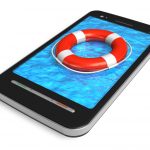
Hurricane Sandy struck the Eastern US coastline and affected millions of people. Japan's third largest carrier, Softbank, contributed half a million dollars to aid in the relief efforts, and recently Verizon Wireless announced that it will support affected customers.
The big red implemented the "Hurricane Sandy -- Voice & Text Program" to show its support towards affected customers from parts of New Jersey and New York. As a result they will not be billed for domestic voice and text usage charges incurred between October 29 and November 16. The nation's largest carrier states that it will act proactively and swallow the cost of the bill without any action required by affected customers.
Sprint buys $480 million worth of U.S. Cellular's Midwest wireless business

Third-largest U.S. wireless network operator Sprint on Wednesday announced it will be acquiring $480 million worth of wireless spectrum from eighth-largest carrier U.S. Cellular in various markets in five different midwest states.
The spectrum licenses encompass 10MHz or 20MHz blocks of space in the 1900 MHz band, the band Sprint is building its 4G LTE network upon. These expanded areas of coverage, which include urban areas of Chicago, St. Louis, South Bend, Indiana and Champaign, Illinois, will be included in Sprint's overarching Network Vision upgrade which began last year.
Hey, we know how you feel: Softbank gives half a million dollars in Hurricane Sandy relief

Japan's third-largest wireless carrier Softbank announced on Friday that it is donating $500,000 to the American Red Cross Disaster Relief Fund to support the relief efforts in East Coast areas seriously affected by Hurricane Sandy.
"Our thoughts are with the millions of people in the Northeastern United States who have been impacted by Hurricane Sandy," said Softbank Chairman and CEO Masayoshi Son in a statement on Friday. "With homes destroyed and families displaced, we hope that our donation can lend some needed assistance to those in the U.S. as they rebuild and recover."
MIT engineers may have cracked the smartphone battery life problem

ETA Devices, a Massachusetts company founded by MIT electrical engineering professors Joel Dawson and David Perrault, has designed a new signal amplifier for cellular communications that could result in a massive drop in power consumption.
As our mobile communications technologies progress, our demands for electrical energy have increased, both on the end user side and on the tower side. When a phone is looking for a signal, for example, the transmitter kicks on, the amplifier cranks up its signal, the energy demands increase, the phone heats up, and the battery dies quickly.
AT&T and T-Mobile share networks for post-hurricane cleanup

Wireless carriers T-Mobile and AT&T announced on Tuesday that customers of either network will be able to place calls on whichever network is most operational in their area. If an AT&T customer can get a T-Mobile signal, they'll be able to place a call, and vice-versa.
Both networks utilize GSM and UMTS wireless standards, so by working together, they can provide more comprehensive coverage in storm-damaged areas.
Everything Everywhere deploys 4G LTE in the UK today

Almost a month ago Everything Everywhere announced that it will deploy 4G LTE over its existing 1800MHz spectrum, starting October 30. Today, the United Kingdom-based carrier launched both faster data services and fiber for its local customers.
EE is the first UK carrier that is allowed to offer 4G LTE, after it previously received the license from local communications regulator Ofcom. It was initially announced that the fast data services will be deployed to 10 major cities across the United Kingdom, but today the carrier upped the number by one. Fiber broadband will also be available to 11 million premises, with touted speeds up to 76 Mbps. Also launched today are 700 EE-branded stores.
Speeding jet fighter maintains 19Mbps LTE connection in Ericsson test
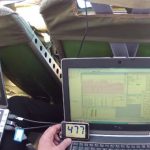
We consumers may still have to rely on mind-bendingly slow in-flight internet connections when we travel, but Swedish wireless communications infrastructure company Ericsson has successfully tested LTE tower connections in a jet traveling 700kph.
Using a low-flying Saab SK60 training jet, Ericsson engineers tested how the Doppler effect would interfere with a standard LTE connection moving at an extremely high rate of speed. While flying at over 600km/h between Linköping and Västervik Sweden, Ericsson's equipment managed a seamless handover from one radio base station to the next while streaming video. The video stream was reportedly uninterrupted.
Just 45 percent of the world's population subscribes to mobile services, and that's not much
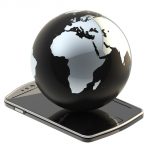
According to the results of a worldwide, multi-year study conducted by industry body GSMA, the total number of global mobile connections will reach 6.8 billion by Q4 2012.
However, the number of actual unique mobile subscribers is much less. By stripping out machine-to-machine (M2M) communications and inactive SIM cards, and factoring in that consumers apparently use an average of 1.85 SIM cards each, GSMA was able to arrive at a figure of 3.2 billion mobile subscribers, or around 45.7 percent of the world’s population.
Samsung Chromebook 3G is available for $329.99
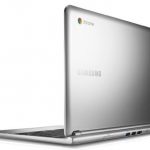
Bad news for some people who pre-ordered the new Samsung Chromebook yesterday. Shortly after the announcement, the South Korean manufacturer introduced a 3G model.
Chromebook 3G comes with an 11.6-inch display sporting a 1366 by 768 resolution, 1.7GHz Samsung Exynos 5 dual-core processor based on the Cortex A15 architecture, 2GB RAM, 16GB SSD for storage, runs Chrome OS and, on top of the Wi-Fi model from yesterday has a Verizon Wireless 3G WWAN with up to 100MB of free cellular data per month for a period of two years. The price for getting a Samsung Chrombook with cellular connectivity is $329.99. Worth it?
Just under half of US wireless services now owned by foreign multinationals
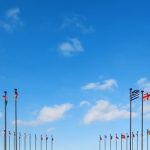
With Softbank's majority stake acquisition of Sprint Nextel Corporation, the amount of foreign interest in the United States wireless market is greatly expanded. On the other side of the coin, wholly-American owned wireless companies are beginning to look like an endangered species.
The two largest US carriers, Verizon Wireless and AT&T are mostly owned by American companies, but based upon first quarter 2012 market share figures (source: Strategy Analytics) and corporate ownership percentages, we estimate that 45.3 percent of the United States' wireless market will be controlled by foreign multinational companies pending the regulatory approval of SoftBank's acquisition of Sprint. As the next four years fan out, we must turn our eyes to the smaller national competitors and regional carriers and see how they merge and change.
SoftBank invests $20.1B in Sprint for 70 percent stake

Four days ago Sprint Nextel Corporation confirmed acquisition talks with Japan's third-largest carrier, Softbank Corp, with unspecified details surrounding the transaction at the time. Today the operator from the land of the rising sun announced that it will invest $20.1 billion in Sprint, $12.1 billion of which will give SoftBank a dominant stake of 70 percent in the US carrier.
The two operators expect the transaction to close, pending approval of Sprint's shareholders, the Federal Communications Commission and other regulatory agencies, in the second half of 2013. Combined the two carriers will rank as the third largest operator worldwide according to the press release, a strong position that favors both parties. The Japan-based carrier will provide Sprint $8 billion from the total amount for its balance sheet, mobile network and strategic investments.
Japan's SoftBank talks investment, possible acquisition of Sprint

United States wireless carrier Sprint Nextel Corporation could be an acquisition target for Japan's third-largest mobile carrier Softbank Corp, the U.S. wireless carrier confirmed on Thursday. Sprint has publicly acknowledged that the two companies are "in discussions" over a SoftBank investment, but the exact nature of this investment has not been clarified.
The competitive landscape of wireless networks in the United States is a difficult one, especially with the high cost of building 4G network infrastructure versus the general scarcity of wireless spectrum licenses. The dominant spectrum holders are the two networks with the most subscribers: Verizon Wireless and AT&T. To compete, the smaller national carriers have to look for new growth opportunities.
T-Mobile and MetroPCS to merge, become the 'value-focused' 4G network

Wednesday, United States wireless carrier T-Mobile USA officially announced it will merge with "baby national" wireless carrier MetroPCS. The combination of the two companies will result in a single carrier with as many as 42.5 million subscribers. Third-place national carrier Sprint had approximately 56 million subscribers at the end of the second quarter in 2012.
The combined company will continue to be called T-Mobile, and will be controlled by T-Mobile's parent company Deutsche Telekom, who will take a 74 percent stake in the merged entity. MetroPCS shareholders will receive $1.5 billion in cash and a 26 percent controlling stake.
Skype offers free WiFi across the UK

If you live in the United Kingdom or the Republic of Ireland, you’ll soon be able to access free WiFi through cafés, restaurants, hotels and shops, courtesy of Skype and wireless provider Wicoms.
The new WiFi network initiative, called Free Skype WiFi, will be available to all Skype users and accessed using the free Skype WiFi app. This already allows users to connect to over a million hotspots around the world, but for a fee. Users who don’t currently have a Skype account will be able to sign up on the spot by entering their email address.
Everything Everywhere launches 4G LTE on October 30

Six weeks ago, United Kingdom communications regulator Ofcom granted Everything Everywhere the right to roll out 4G LTE over its existent 1800MHz wireless spectrum. Starting October 30, the new brand along with its 4G LTE services will launch in the UK market.
The carrier will deploy 4G LTE in 10 cities, a number increasing by six before the end of the year, which equates to one-third of the UK population. Everything Everywhere also revealed a longer-term plan to reach 98 percent coverage by 2014.
Recent Headlines
Most Commented Stories
BetaNews, your source for breaking tech news, reviews, and in-depth reporting since 1998.
Regional iGaming Content
© 1998-2025 BetaNews, Inc. All Rights Reserved. About Us - Privacy Policy - Cookie Policy - Sitemap.